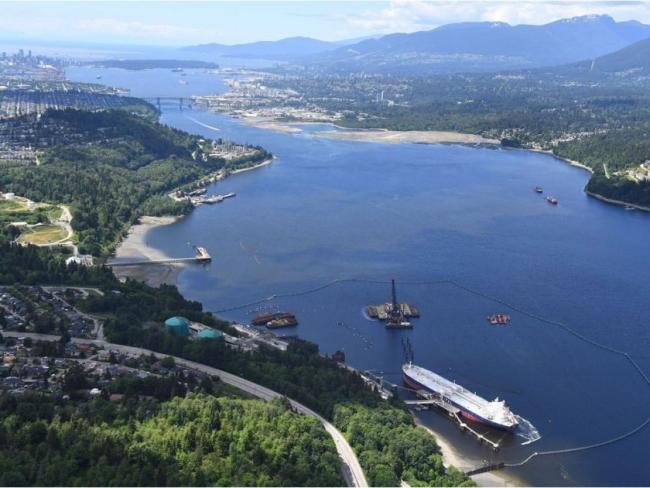Articles Menu

It was election night in 2017 and Wilderness Committee staff were gathered at our local watering hole nervously watching the vote totals roll in. We had a lot riding on this election, especially in the fight to stop the Trans Mountain pipeline and tanker project.
I remember celebratory cheers from NDP candidates that they would stop the pipeline as the night turned in their favour and I have no doubt many of these MLAs still hold this as a priority, and even believe their government is honouring its election promise.
Last month, the provincial government asked a federal court whether it had the power to use regulations to block the transport of diluted bitumen, peanut-butter-like oil from the oil sands, across its waterways. If granted the authority, this would likely stop the project.
This risky legal strategy is hardly the only available option to protect the B.C. coast nor necessarily the best one. Yet it seems to be the only tool that Premier John Horgan and his government are ready to deploy.
Gone are the days of “defend our coast” press conferences and trading barbs with the premier of Alberta. When the National Energy Board re-approved the pipeline last month, Horgan responded with a tweet.
Meanwhile, Alberta’s $31 million worth of advertisements clog TV, radio, online and print media with absurd claims that Canada is losing $80 million every day that the Trans Mountain pipeline isn’t built. Where are B.C.’s ads exposing this mistruth and highlighting the billions of dollars that B.C. residents would suffer in potential losses from a catastrophic diluted bitumen spill?
Instead, the only time we hear from the provincial government officials about the project is when they’re asked. Even then, their response is to reiterate their commitment to defend our coast.
It’s quite possible the government’s legal advisors have given instructions to distance themselves from their vocal opposition to the project. But when the governor of Washington State appears more active on this file than our own premier it’s fair to question the Horgan government’s half-hearted strategy.
One of the best legal opportunities the government had to stop the project was a court case from the Squamish Nation to overturn the provincial permit for the project. They argued that former Premier Christy Clark’s government changed its position without consultation. Legal experts advised the province to side with the Squamish and ask a judge to cancel the permit. Instead, the province opposed the Squamish Nation, defended the consultation process and continues to do so on appeal.
British Columbia can also add conditions to Trans Mountain’s environmental certificate at any time. For example, it could require the company to prove responders can clean up diluted bitumen if it sinks deep into the water. It could compel Trans Mountain to move the pipeline route from key aquifers in Coldwater and Chilliwack and cause years of delay. Or it could force the company to prove its business case in a world that meets the goals of the Paris Agreement.
Another possibility is to require a health assessment, which would be firmly within provincial jurisdiction. Trans Mountain plans to triple the capacity of its Burnaby tank farm by adding 14 new storage tanks as part of the expansion, which has raised alarm about public safety.
Firefighters, doctors and local residents have continually expressed fear of a fire on Burnaby Mountain that could trap thousands of people while toxic gas clouds billow throughout the Lower Mainland. A similar disaster playing out in Deer Park, Texas in the last few weeks has made these concerns all too real.
There are numerous other health risks as well, from the acute impacts of exposure to a diluted bitumen spill to the long-term aftermath of the loss of traditional foods for First Nations. That’s not to mention the health impacts of climate change, which British Columbians feel every time wildfire smoke fills our skies in summer and salmon fail to reach spawning grounds in the autumn.
Horgan could order a thorough study of these impacts under the province’s environmental certificate issued to Trans Mountain and force the project to avoid these risks or craft new regulations under the Environment and Land Use Act to prevent it from moving forward.
Given all the options available to the provincial government, it’s hard to characterize its arguments in the courts as “all the tools in the toolbox.” I can’t shake the feeling that Horgan has made an arrangement with Premier Rachel Notley and Prime Minister Justin Trudeau not to rock the boat.
Since that boat is on a collision course with a thriving coast and the tens of thousands of British Columbians who will do whatever it takes to protect it, we need the provincial government grab the wheel and change course.
Peter McCartney is the climate campaigner for the Wilderness Committee.
[Photo: An aerial view of Kinder Morgan's Trans Mountain marine terminal in Burnaby. Jonathan Hayward / THE CANADIAN PRESS]